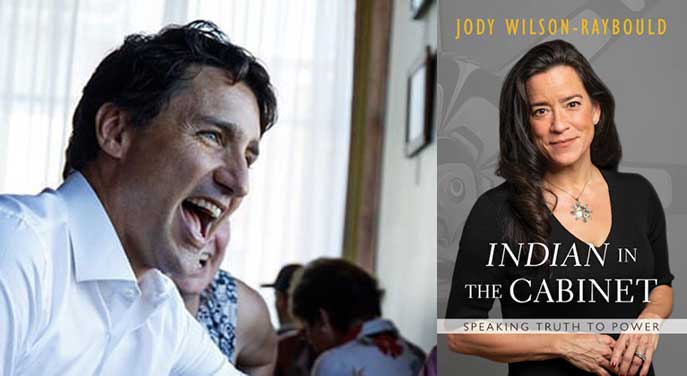 Elections in democracies generally fit under one of two historical patterns.
Elections in democracies generally fit under one of two historical patterns.
They can be straightforward experiences where parties and candidates take an early lead and romp to victory or win comfortably. They can also be complicated situations where parties and candidates go up and down in the polls like yo-yos, face many twists and turns, and the country witnesses a fairly close result.
Canada’s 2021 federal election will clearly fit under the latter pattern.
Take opinion polls, for instance. They’re not always the best indicator of an election result, but they provide some unique snapshots of what the electorate may be thinking.
Two polling firms, Nanos and Mainstreet Research, showed the Liberals ahead of the Conservatives on Sept. 12 by 33.2 to 30.2 per cent and 33.5 to 28.6 per cent, respectively. Conversely, three other pollsters, EKOS, Forum Research and Counsel, showed the Conservatives ahead of the Liberals between Sept. 10 and 11 by 32.8 to 31.1 per cent, 31 to 28 per cent and 30.2 to 29.7 per cent, respectively. One polling firm, Abacus Data, called it a dead heat at 32 per cent on Sept. 12.
 Here’s some other revealing data from one firm.
Here’s some other revealing data from one firm.
Nanos uses a rolling average for polling. They had the Conservatives ahead between Aug. 31 to Sept. 9 by one to five per cent. The exception was Sept. 5, where the Liberals briefly moved in the lead by 2.1 per cent. After the Conservatives led 33.3 to 31.3 per cent on Sept. 9, the Liberals surged ahead 34.4 to 30.1 per cent on Sept. 10. The Liberals still led, but the gap narrowed to 34.0 to 30.7 on Sept. 11.
Hence, there seems to be more undecided voters in this election cycle than previously assumed. There’s also a soft amount of Liberal and Conservative support that could easily bounce around from now until Sept. 20.
Unless a political game-changer suddenly arrives on the scene.
What’s a game-changer?
An unexpected event, situation or moment that changes the dynamics of an election to favour one party or candidate. They don’t happen all the time, they’re impossible to predict, and even if you know something is brewing, you don’t know what the overall impact will be with voters.
Michael Bloomberg only became New York City mayor because of the terrorist attacks on 9/11, for instance. This tragedy helped the Republican mayoral candidate as he rode the coattails of President George W. Bush’s war against terrorism. This game-changer turned around Bloomberg’s huge deficit against Democrat Mark Green and he won by 50.3 to 47.9 percent. He would go on to serve three terms as mayor, while Green would never run for this position again.
Meanwhile, U.S. Republican President Ronald Reagan’s famous line in the 1984 debate against Democrat Walter Mondale (“I will not make age an issue of this campaign. I am not going to exploit, for political purposes, my opponent’s youth and inexperience.”) turned a close election into a runaway. Ralph Nader’s decision to run in the 2000 U.S. presidential election for the Green Party took millions of votes away from Democratic presidential candidate Al Gore. United Kingdom Conservative Prime Minister David Cameron’s all-or-nothing gambit with Brexit in 2016 cost him a majority government and his political career.
Canada has also had some game-changing moments. Brian Mulroney’s knockout blow against John Turner in the 1984 debate about Liberal patronage appointments (“You had an option, sir.”). Ontario Premier David Peterson’s early election call in 1990 badly backfired and led to Bob Rae’s NDP taking the reins of government. Tim Houston and the Nova Scotia Progressive Conservatives’ stunning victory in August due to its heavy focus on one issue: health care.
A game-changer in this federal election could be Jody Wilson-Raybould’s book, ‘Indian’ in the Cabinet: Speaking Truth to Power, which was released on Monday. The former federal attorney general has spoken in some detail about her difficult relations with Trudeau and senior Liberal advisers during the SNC-Lavalin affair in 2019. Her memoirs included even more details, noting that some discussions related to this scandal were quite intense. The telling passage, “In that moment, I knew he wanted me to lie,” speaks volumes about her perception of Trudeau.
The story has some legs. It could remain in the news cycle for an extended period – three or more days. Trudeau has flatly denied Wilson-Raybould’s allegations, and many Canadians made a decision about the Liberals and SNC-Lavalin in 2019.
Nevertheless, Wilson-Raybould’s book could open old wounds and create new ones. If that happens, it could evolve into a game changer – and this close election could be turned on its head once more.
Time will tell, and history waits patiently.
Michael Taube, a Troy Media syndicated columnist and Washington Times contributor, was a speechwriter for former prime minister Stephen Harper. He holds a master’s degree in comparative politics from the London School of Economics. For interview requests, click here.
The views, opinions and positions expressed by columnists and contributors are the authors’ alone. They do not inherently or expressly reflect the views, opinions and/or positions of our publication.
© Troy Media
Troy Media is an editorial content provider to media outlets and its own hosted community news outlets across Canada.

